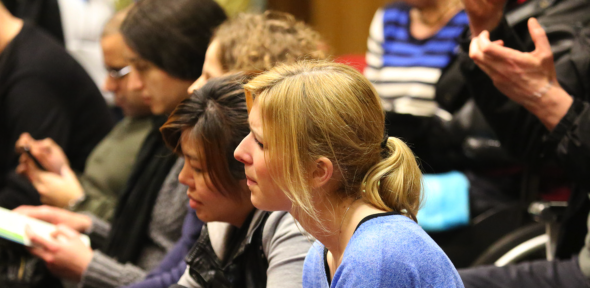Life as a Linguistics PhD Student
Introductory meeting
At the beginning of the Michaelmas Term there is an introductory meeting for all new PhD students in the Faculty, at which you will be told about the structure of the degree, PhD training requirements, and useful information will be provided on the Moodle platform.
Later in the same week there is a Linguistics-specific meeting for years 1-3 Linguistics PhD students chaired by the Linguistics PhD Coordinator.
Supervision
You will be assigned a supervisor for your studies in Cambridge. The supervisor will be a specialist in the general field in which you propose to work, although he or she may not be an expert on your particular topic of research. Your supervisor will assist you in refining your research topic, oversee the general direction of your work, and ensure that what you are doing is up to the standard expected for the degree towards which you are working. You can expect to meet your supervisor on average once a month to report on your progress, and more frequently than this if necessary. How much you write in a given period will vary, but as a rule of thumb you will usually be expected to produce at least one substantial piece of written work each term.
In addition to their supervisor, PhD students are assigned an advisor, who is a member of the Faculty with expertise in the student’s field. The advisor is also available for less formal consultation from the outset. The student has a formal advisory meeting with the supervisor and an independent assessor once a year.
Faculty Support
For PhD students the key contact for advice and guidance on academic matters is the PhD Coordinator. The Linguistics Postgraduate Secretary is available for help and support on administrative and non-academic matters. In addition, the Director of Postgraduate Studies has responsibility for postgraduate affairs in the Faculty. The Faculty Postgraduate Office Team are also on hand for guidance on Faculty-wide matters.
College and other support
Colleges provide a range of social and sporting facilities, as well as varying levels of accommodation and of computing support. Colleges usually have a Tutor for Postgraduates, who can offer advice with personal or financial difficulties. If for any reason students find it difficult to discuss a problem with their supervisor, a college Tutor can often provide an additional level of support. Some Colleges may also have some funds available for attending conferences and similar academic needs. The University Counselling service also offers confidential support to postgraduate students.



